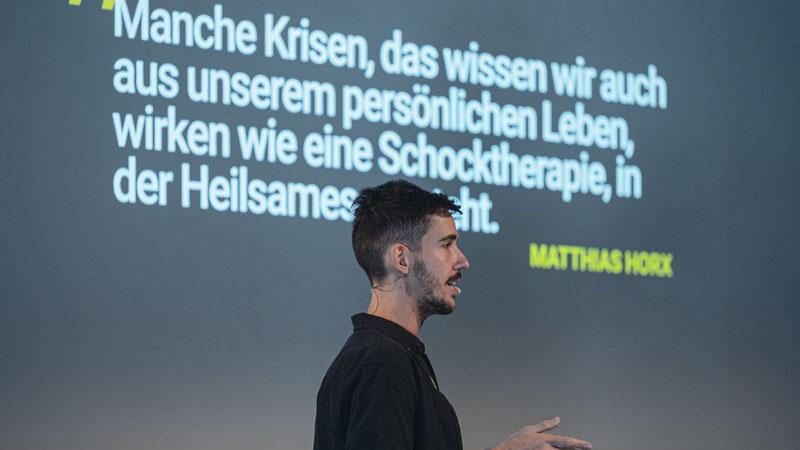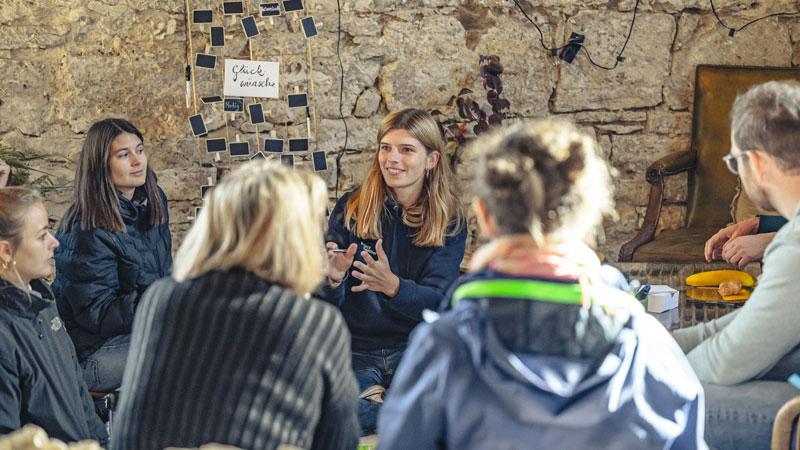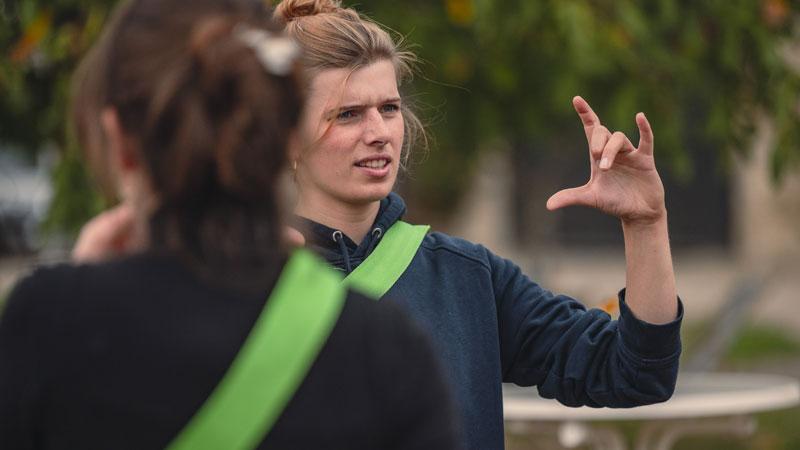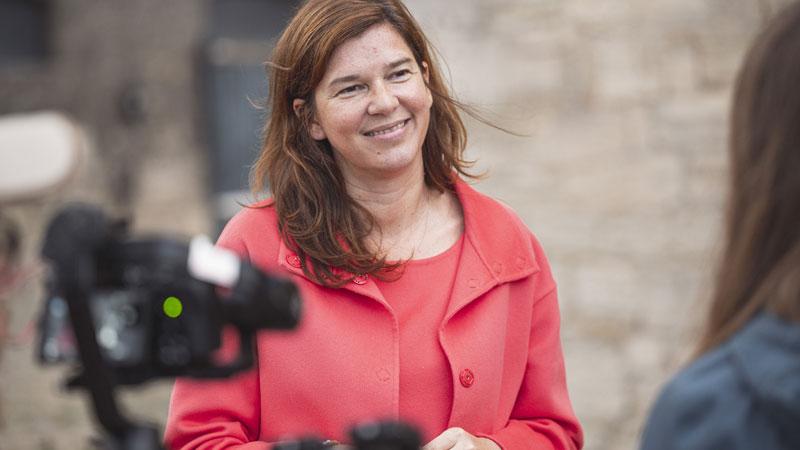Keeping agriculture and food systems within planetary boundaries
October 25, 2022
71% of this is caused by livestock breeding, fishing, and human consumption, while 16% is due to packaging and transport and 13% is due to food waste.
But greenhouse gases are just the tip of the iceberg. The system itself must be transformed from the ground up if greater progress is to be made in the fight against global warming and towards the 17 Sustainable Development Goals (SDGs).
Climate action through resilient food systems
Transformation is becoming an increasing focus of climate action efforts, and not without reason. Climate change, the extinction of species, and other complex crises like Russia’s invasion of Ukraine have made it clearer than ever that we are on the precipice of changes both fundamental and necessary in all areas of the economy and society. We are at a turning point, and we now have the opportunity to take concerted action to change course. Our food systems, too, are in need of a comprehensive transformation that takes every factor into account.

© Jan Wagner soilify.org
The recommendations made by the German Commission on the Future of Agriculture in August 2021 show how badly the agriculture and food system is beset by tensions and contradictions: "It stands both at the centre of the global changes that have gripped our entire civilisation and on the verge of a radical transformation process. Given our responsibility to present and future generations, that transformation must be completed within a very short period of time. It is consequently an agenda for society as a whole."
Innovation sparked by cooperation

© Jan Wagner soilify.org
Consequently, food and agriculture play a key role in climate action. However, serious change needs fresh eyes, ideas from outside the box, and a great deal of motivation. It requires people who find new, viable strategies and drive the transformation on every level of sustainability – ecological, economic, social, and cultural.
Sustainable change occurs through cooperation. That is why we from ClimatePartner headed to the Farm-Food-Climate Festival at Domäne Schickelsheim in Germany to meet with many other organisations and individuals who are working to make food and agriculture systems sustainable in the future.
The festival featured participant-led workshops in which attendees cooperated to restructure food and agriculture within planetary boundaries and in alignment with the SDGs. Regenerative agriculture, carbon farming, biodiversity, rehydration of moors, resilient food systems, agroforestry, regionalism, consumer behaviour, decarbonisation, and the promotion of innovation were just some of the topics discussed.
Soil fertility, biodiversity, and decarbonisation – the positive effects of agriculture must be quantified

© Jan Wagner soilify.org
It is clear that we need innovation and blue-sky thinking for climate action within food and agricultural systems to take on these challenges. We need to steer the transformation and the fight against global warming in a concerted manner because implementation is the problem, not knowledge. The public sector must ramp up its support for the transition to new ways of working since we need a system to sustain the results as well as the power to innovate.
Incentivising the positive effects of agriculture in the carbon markets – such as soil fertility, water regulation and habitats that support biodiversity – is an important issue that demands solutions and quantifiability. Strong regional value chains are another crucial element in food systems, as is the need for cafeterias, lunchrooms, and the wider catering industry to make changes and embrace sustainable protein sources like legumes and other meat-free options. After all, whatever is farmed within the boundaries of our planet still needs a buyer.
Results handed to German Minister of Food and Agriculture
In late September, the Farm-Food-Climate team presented the results of the Farm-Food-Climate workshops to Germany’s Minister of Food and Agriculture Cem Özdemir, and discussed support, subsidies, and further cooperation with the German Federal Ministry of Food and Agriculture. Both sides see the opportunities in the challenges of food and agriculture systems and aim to drive the transformation together. We are excited and look forward to continuing the dialogue!
ProjectTogether and the Farm-Food-Climate Challenge
The Farm-Food-Climate Challenge, organiser of the Farm-Food-Climate Festival, is a programme launched by the non-profit organisation ProjectTogether. It aims to support ambitious, forward-looking initiatives that get people involved to bring about change.
In the case of the Farm-Food-Climate Challenge, a large network is working to bring the European Union’s Farm to Fork Strategy to life and to optimise the impact of the agricultural value chain. The Farm to Fork Strategy is part of the Green Deal and its purpose is to promote a sustainable, profitable European agriculture and food sector based on innovation and digital technology. It covers the entire food system – from farm to fork.

© Jan Wagner soilify.org
The festival was a conference as well as a change-maker event, enabling it to overcome the limits of a traditional conference and create a safe environment for moments of inspiration and technical discussions.
Attendees were inspired by the visions presented by keynote speakers including Dr Ophelia Nick (State Secretary at the German Federal Ministry of Food and Agriculture), Dr Dirk Brockmann (Complex Systems Researcher, Humboldt University of Berlin, RKI), Dr Hermann Lotze Campen (Climate Resilience, Potsdam Institute for Climate Impact Research), Dr Folkhard Isermeyer (Thünen Institute), and Daniel Anthes (Zukunftsinstitut).
The uniquely friendly atmosphere, which fostered close cooperation between civil society, business, science, and politics, was not the only hallmark of the event: It was also dominated by the palpable determination of all 200 participants to effect sustainable change and shape the future.